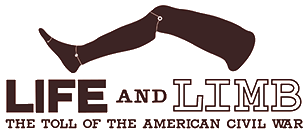
Class 5: Forgetting and Remembering the Civil War
Introduction:
Although Northerners and Southerners almost never doubted the justness of their respective causes, they returned home after Appomattox burdened by a war that had taken an extreme emotional and physical toll. Mental health issues stemming from extreme physical duress and the trauma of combat overtook countless veterans as they adjusted to civilian life. This class begins by looking at the difficult transition that Civil War soldiers faced in the immediate aftermath of war. Eric T. Dean Jr. provides the necessary context for students to understand the psychological problems of Civil War veterans and how the medical establishment diagnosed and treated mental health issues during the late nineteenth century. Dean reminds us that soldiers were ambivalent about the actual experience of combat, that they looked back at those moments under fire as both exhilarating and terrifying. This class concludes by looking at soldier memoirs, asking students to analyze the ways that veterans retained and rejected the sentimental culture of heroism that had sustained and frustrated them during the war.
Readings:
Primary:
Bull, Rice. Soldiering: The Civil War Diary of Rice Bull. San Rafael, Ca.: Presidio Press, 1978, 35–76.
Casler, John. Four Years in the Stonewall Brigade. Girad, Kansas: Appeal Publishing Company, 1906. Chap. 15, 141–162. Available online at http://www.archive.org/details/fouryearsinston00hotcgoog (accessed 09/30/2011)
Secondary:
Dean, Eric T. Jr., Shook over Hell: Post-Traumatic Stress, Vietnam, and the Civil War. Cambridge: Harvard University Press, 1997, Chap. 7.
Discussion Questions:
- Dean notes a major shift in how the field of psychiatry in the late nineteenth century emphasized material circumstance and conditions rather than the morality of the individual. How did this change the ways that mental health problems were understood?
- According to Dean, why were physical maladies a roadblock to understanding the mental health issues of Civil War veterans?
- Civil War soldier memoirs rarely contain any hint of frustration or bitterness about military experience. In fact, most veterans’ groups gave speeches and dedicated monuments that reaffirmed their wartime service for its incomparable display of American manliness. How did Casler and Bull describe their war experiences? Do they affirm or diverge from the wartime sentimental culture? Why?


